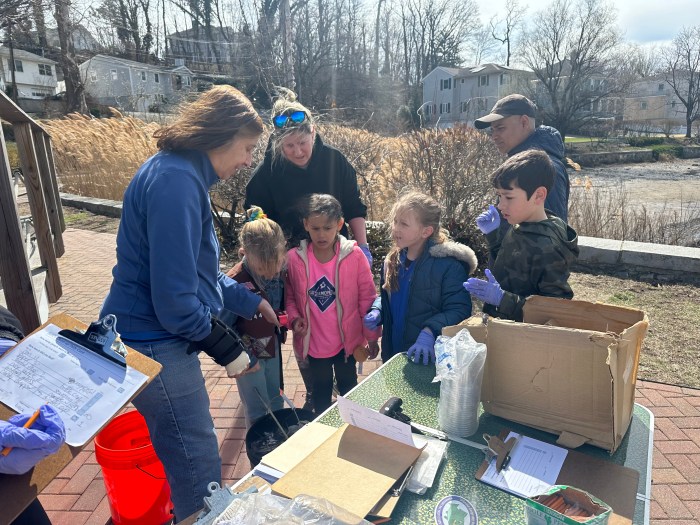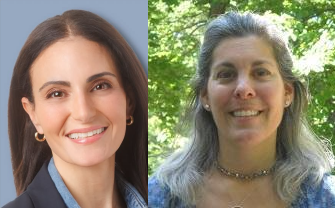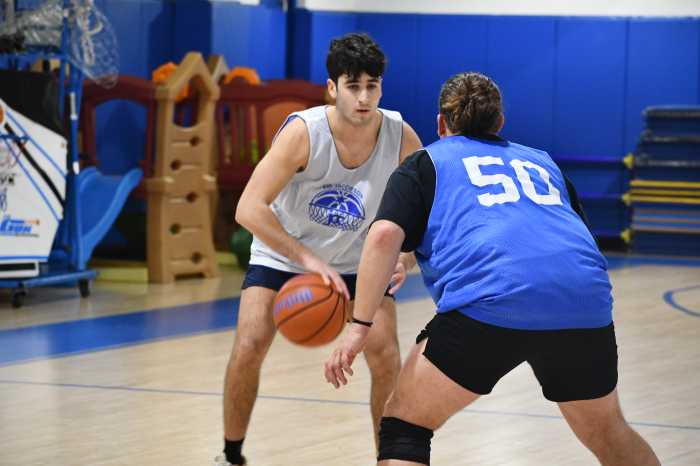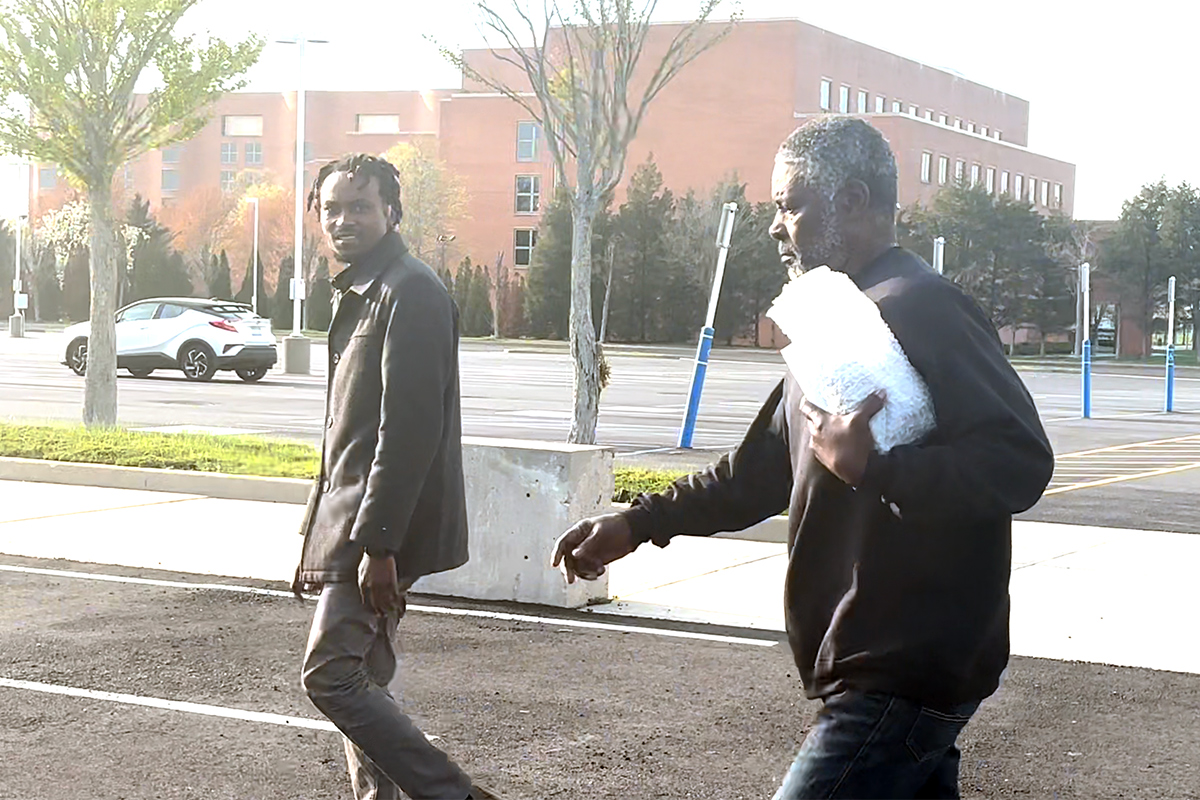Northwell Health and Feinstein Institute participate in focused ultrasound trial
They are quite possibly the three most terrifying words you can hear from your doctor: “You have cancer.” Under that cancer umbrella, a brain tumor is one of the most daunting diagnoses. With the brain being the control center for everything, early detection and effective treatment are key for the best possible outcomes. There is hope, however. Healthcare is making gains against these diseases with novel new approaches such as the focused ultrasound trial taking place at North Shore University Hospital, led by Dr. Michael Schulder, the vice chairman and residency program director in the Department of Neurosurgery at Hofstra/Northwell and director of the Brain Tumor Center at Northwell Health.
Most people are familiar with the type of ultrasound used for imaging, such as for internal medicine or pregnancy. Sound waves are transmitted from the instrument into the body. Those waves then bounce off internal structures back to the machine, which produces the images. It works in a similar way to echolocation in animals.
The ultrasound used in the trial is a more focused delivery of energy into the body. There are currently treatments using focused ultrasound in the brain to treat issues like tremors, but this trial is the first to explore using it more broadly. “This is a different…technology that allows it to be used pretty much in the whole head. Focused ultrasound applies ultrasound energy to the tumor that’s visible on the MRI, and also to a large area around it because we know that there are tumor cells that you can’t see on the MRI.” Dr. Schulder said.
In addition to the focused ultrasound treatments, patients are receiving a medication called five amino levulinic acid, abbreviated five-ALA. This medication is metabolized differently in tumor cells, allowing those cells to show up more clearly and, in turn, be targeted more easily.
This non-invasive approach targets brain tumors and is for people who have already been through treatment and have seen their tumors return. The treatment is currently in phase one, where safety and efficacy are evaluated. The doctors are paying close attention to side effects at this stage, but also monitoring how the tumors are responding.
Yehuda Haber, 62, was one of the first patients to enroll in the trial and undergo treatment and the first with his type of brain tumor. Diagnosed 20 years ago with oligodendroglioma, Haber was treated with radiation and oral chemotherapy. Three years ago he was referred to Dr. Schulder for a different treatment with a laser. He had four of these procedures, each of which was successful, but Dr. Schulder advised him that this treatment alone would not be a long-term solution. On October 12, Haber enrolled in the clinical trial.
“…I knew I didn’t want to go through the painful radiation and chemo treatment again,” said Mr. Haber. “When Dr. Schulder told me about this new trial, I didn’t hesitate to sign up. I hope this treatment works for me and others fighting for their lives.”
“For right now, the trial…is for people whose tumors have come back, For recurrent, high-grade gliomas.” Dr Schulder said. High-grade glioma is a blanket term that covers several types of tumors. A high-grade glioma is a tumor formed in the brain or spinal cord through the abnormal growth of glial cells. These cells surround, protect, and help neurons send messages from the brain to the rest of the body. There have been a few high-profile people who have succumbed to this in recent years, including John McCain and Ted Kennedy.
“Unfortunately, successful treatment, meaning long term remission, let alone cure, has proved to be an elusive target. Ever since modern neurosurgery began 120 years ago, we’ve pushed the needle back on these patients, but it’s relatively small increments.” Dr. Schulder said. “It’s nothing compared to the revolutionary changes that have emerged in the last 10 to 15 years with what are called ‘targeted therapies’ or ‘immune therapies’ for people with cancers elsewhere in the body, and that truly has been revolutionary. Nothing like that has happened yet for people with brain tumors.”
Dr. Schulder has a ferocious optimism when it comes to combatting these cases. He believes that the kinds of gains that have been made in other areas can be made in brain tumors as well. “It’s very recently in medical history where these problems that were deemed to be completely hopeless and without a solution, now turned out to be very hopeful with very good solutions. People who would have died within months now can effectively be cured.”
It is possible that this treatment, if proven effective, might be applied to other areas of the body as well, such as pancreatic cancer. “We know that radiation can be effective in pancreatic cancer, but you can’t repeat the treatments. So it has to work the first time. If ultrasound will prove to be effective, there should be no obstacle to repeating it as needed.”
Dr. Shulder sees a future where most cancers have effective treatments that take the terror out of a diagnosis. He bases this optimism in the successes of treatments for other types of cancer such as lymphoma or leukemia. In just a few decades, the expectation has gone from hopeless to remission. Even certain kinds of metastatic cancers have had huge advances. “When I was in medical school, if you had lymphoma or leukemia, it was basically a death sentence. Now, most people who get those cancers expect to get cured and many of them are. Later on, if you had certain kind of metastatic, so-called solid tumors, you were also pretty much a goner, but then there were advances in surgery, chemotherapy and radiation that allowed people to have effective cures. After the year 2000 we got targeted therapies that were aimed at specific enzymes in cancers. And now you had no chemotherapy drugs that can make certain tumors effectively melt away. About 10 years ago, immune therapy was shown to be effective for people with even metastatic cancer.”
Approximately 1.9 million people are diagnosed with and around 600,000 people die from cancer each year. For all our advances, there is always more to be done. “We need to put all of our available methods and technology to treating people with cancer. You know, the national statistics this past year showed that the likelihood of dying from cancer in the US had dropped substantially. And that is really the result of advances, not just in screening, which of course is important but also in treatment. And we should keep our foot on that gas pedal and upload everything we can to to improve treatments for all kinds of cancers.”
This trial is part of a national trial through Alpheus Medical. Individuals interested in participating can contact the Office of Clinical Research at (516) 881-7067 or clinicaltrials@northwell.edu.
A New Direction: Healing Hard To Treat Tumors From The Outside
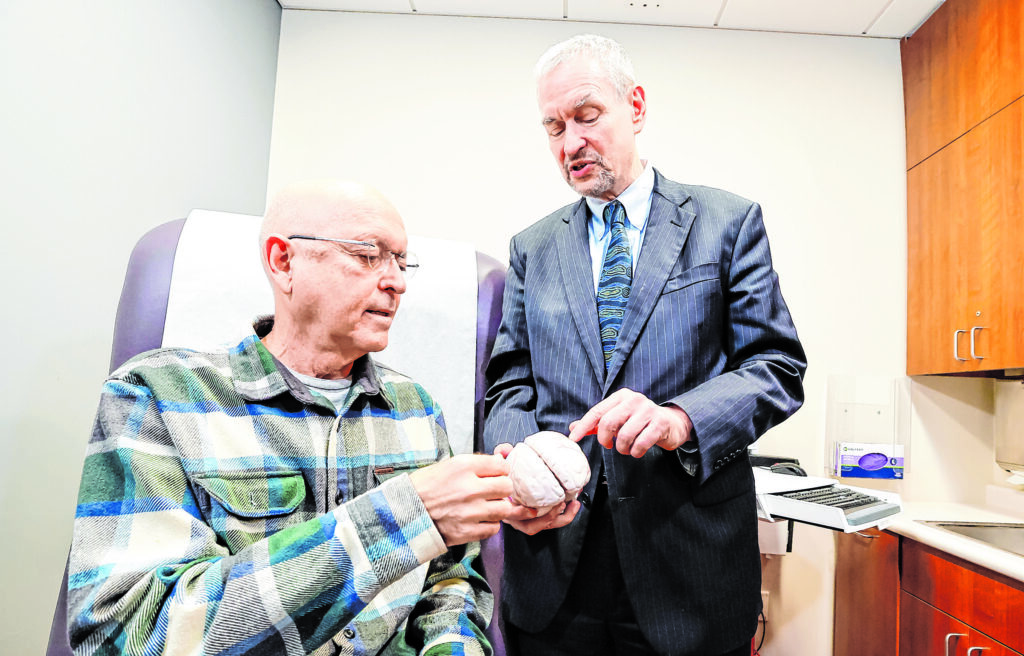
Yehuda Haber (left) one of the trial participants, and
Dr. Michael Schulder. (Photo by the Feinstein Institutes)




